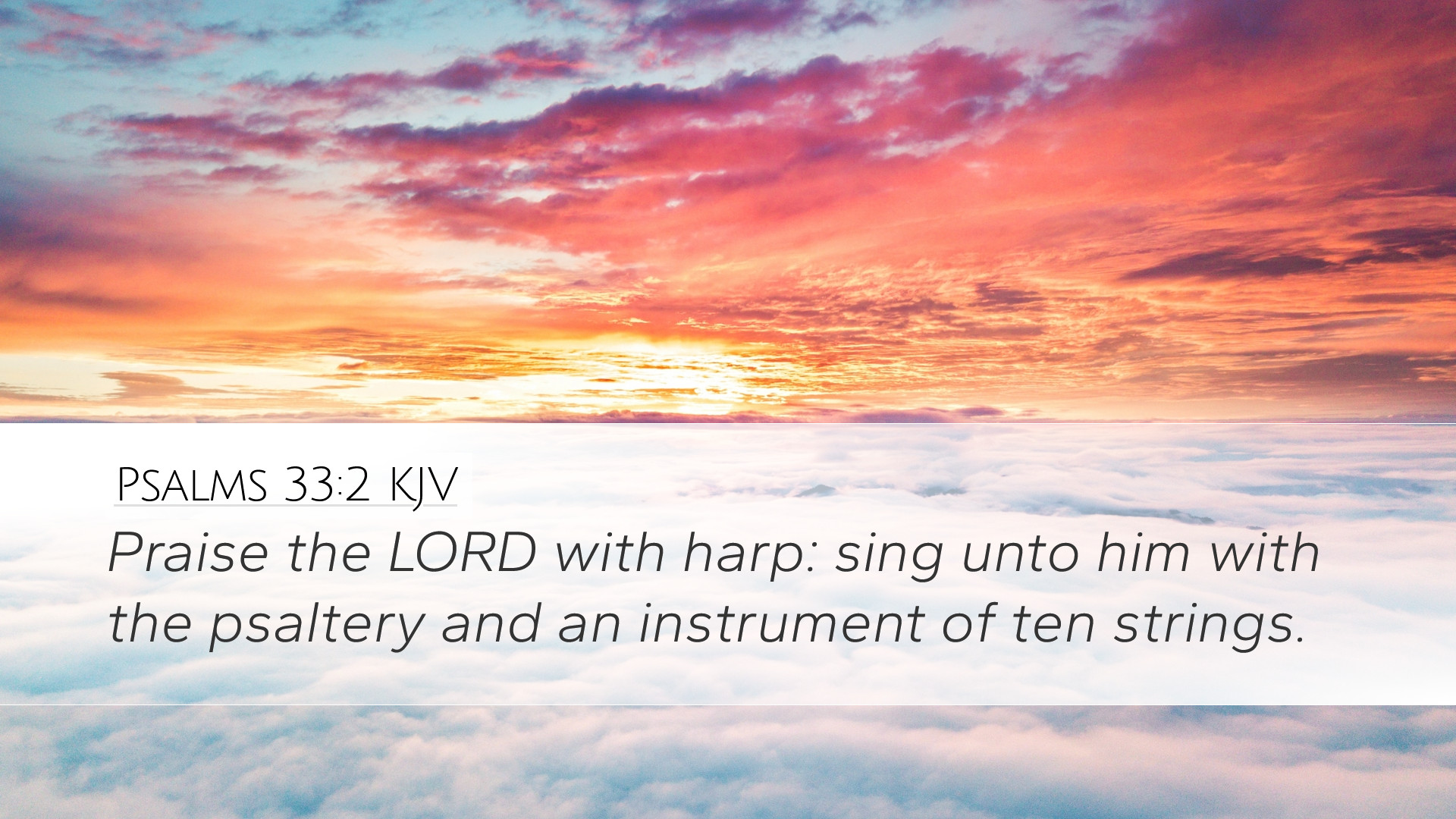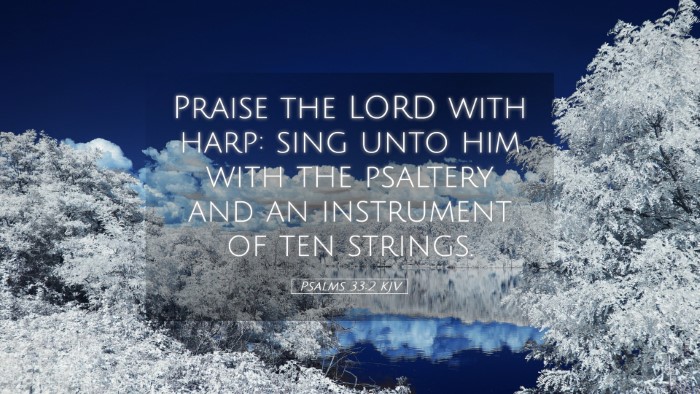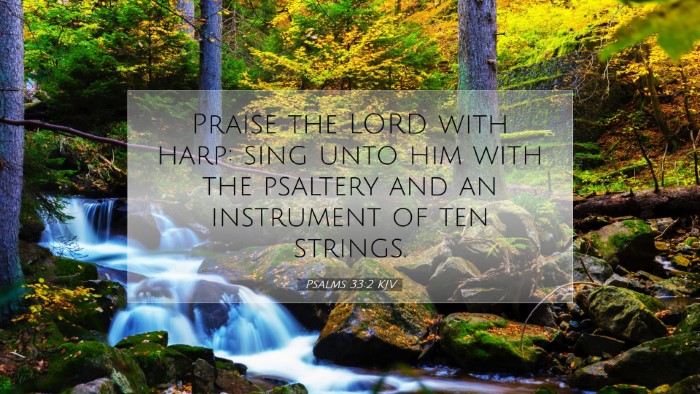Commentary on Psalms 33:2
Psalm 33:2 reads: "Praise the Lord with the harp; make music to him on the ten-stringed lyre." This verse invites the faithful to engage in worship through musical expression, a theme prevalent throughout the Psalms. The call to praise with instruments indicates not only the importance of music in worship but also reflects the broader biblical view of God’s majesty and the appropriate human response.
Historical Context
Psalms 33 is traditionally seen as a communal hymn of praise, likely composed during a time of national reflection or deliverance. As noted by Matthew Henry, this Psalm encourages the people to unite in thanksgiving for God's providence and to honor Him with joyful noise. The act of praising God with music was a fundamental aspect of the Israelite worship tradition.
Understanding the Instruments
- The Harp: A stringed instrument that symbolizes joy and celebration. It was commonly used in biblical times, and its inclusion signifies a heartfelt offering of praise.
- The Ten-Stringed Lyre: This instrument highlights the richness of the musical expression expected in worship. As Albert Barnes notes, the emphasis on the lyre represents a complete examination of musical praise.
The choice of these instruments suggests a total commitment to bringing one's best before God. God is worthy of the finest expressions of human creativity and artistry in worship, which should reflect our understanding of His character and deeds.
Theological Insights
The call to praise God with instruments in Psalm 33:2 offers rich theological implications for both personal and communal worship. Adam Clarke emphasizes that the significance of this verse lies in the acknowledgment of God's sovereignty and power. The act of praising God with music serves to remind the worshippers of His greatness, which should invoke both reverence and joy.
God's Sovereignty
Worshipping with music acknowledges God's ultimate authority over creation. The Psalmist reflects this understanding when inviting the community to engage in worship that recognizes God’s role as creator and sustainer. Matthew Henry notes that musical worship is a form of exalting God’s greatness and providence, expressing reliance and trust in divine leadership.
Community and Worship
The nature of worship in Psalm 33 is communal. Albert Barnes discusses how the collective praise fosters unity and strengthens the faith community. Music in worship has a unique capacity to bind the congregation together, creating shared experiences that testify to God’s goodness and deliverance.
The Role of Music in Worship
Music has a profound ability to stir emotions and convey theological truth. In Psalm 33:2, the call to use instruments elevates worship beyond mere verbal expression. Adam Clarke asserts that music not only entertains but also teaches, admonishes, and inspires the faithful. The vibrant involvement of instruments invites congregants to engage their hearts wholly in the act of worship.
Application for Believers Today
For pastors and leaders today, Psalm 33:2 serves as a strong reminder of the importance of music in the life of a church. The orchestration of worship should encourage creativity and skill while ensuring that the ultimate focus remains on glorifying God.
- Encouragement to Involve Talent: Churches should actively encourage musicians and singers to use their gifts for God's glory.
- Emphasis on Joyful Worship: Leaders should strive to foster an atmosphere of joy, ensuring that worship is not a solemn duty but a celebration of God's grace.
Conclusion
Psalm 33:2 encapsulates the essence of vibrant worship led by music. The instruments mentioned—a harp and a ten-stringed lyre—serve as symbols of our response to God’s greatness. In the rich tapestry of worship that includes not just singing but also musical artistry, we are reminded of the joy and reverence called for in approaching our Creator.
In light of such insights derived from the commentaries of Matthew Henry, Albert Barnes, and Adam Clarke, it is clear that worship through music stands as a beautiful expression of our faith community's acknowledgment of God's sovereign and loving nature.


